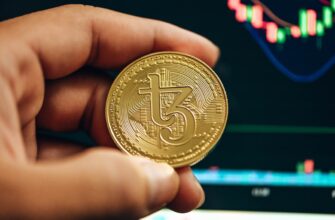## Introduction to Cryptocurrency in Sri LankannCryptocurrency adoption is gaining momentum in Sri Lanka as citizens explore digital assets amid economic challenges. While not legal tender, cryptocurrencies like Bitcoin and Ethereum offer alternative financial avenues for investment and remittances. This guide explores Sri Lanka’s crypto landscape, covering regulations, purchasing methods, risks, and future potential – essential reading for anyone navigating this emerging market.nn## Current Legal Status and RegulationsnnSri Lanka’s Central Bank (CBSL) maintains a cautious stance:nn* **Non-Legal Tender:** Cryptocurrencies aren’t recognized as legal money or regulated payment methods.n* **CBSL Warnings:** Repeated advisories highlight risks like volatility, scams, and lack of consumer protection.n* **No Explicit Ban:** Trading and holding crypto isn’t illegal, creating a regulatory gray area.n* **Tax Uncertainty:** Clear tax guidelines for crypto gains remain undeveloped.nnInvestors operate in an unregulated space requiring extreme due diligence.nn## Popular Cryptocurrencies Among Sri LankansnnMarket trends show strong preference for established coins:nn1. **Bitcoin (BTC):** Dominates as the primary investment and store-of-value asset.n2. **Ethereum (ETH):** Favored for smart contracts and altcoin trading.n3. **Stablecoins (USDT, USDC):** Widely used for trading pairs and preserving value during rupee volatility.n4. **Binance Coin (BNB):** Popular due to Binance’s extensive local user base.n5. **Cardano (ADA) & Solana (SOL):** Gaining traction among tech-savvy investors.nn## How to Buy Cryptocurrency in Sri LankannFollow these steps to purchase crypto securely:nn1. **Choose an Exchange:** International platforms like Binance, Coinbase, or Kraken support LKR deposits.n2. **Complete KYC:** Submit ID proof (National ID/Passport) and address verification.n3. **Deposit LKR:** Use bank transfers (TT/Telegraphic Transfer) or peer-to-peer (P2P) platforms.n4. **Buy Crypto:** Convert LKR to USDT or directly purchase desired cryptocurrencies.n5. **Secure Storage:** Transfer funds to a private wallet (e.g., Trust Wallet, Ledger) for enhanced security.nn**Key Tip:** Compare exchange fees – P2P often offers better rates but requires escrow verification.nn## Major Risks and ChallengesnnNavigating crypto in Sri Lanka involves significant risks:nn* **Regulatory Uncertainty:** Sudden policy changes could restrict access or impose penalties.n* **Market Volatility:** Sharp price swings can lead to substantial losses.n* **Scams & Fraud:** Fake exchanges, phishing schemes, and Ponzi schemes target inexperienced users.n* **Banking Hurdles:** Some banks block transactions to crypto exchanges.n* **Technical Complexity:** Wallet security and transaction errors pose risks for beginners.nn## Future Outlook for Crypto in Sri LankannDespite challenges, catalysts could drive adoption:nn* **Remittance Potential:** Crypto offers faster, cheaper cross-border transfers for Sri Lanka’s diaspora.n* **DeFi Opportunities:** Decentralized finance could provide credit access amid banking instability.n* **Blockchain Innovation:** Government and private sector explore blockchain for supply chain, land registry, and identity management.n* **Regulatory Evolution:** Global trends may push Sri Lanka toward structured frameworks.nnSuccess hinges on balanced regulations protecting users while enabling innovation.nn## Frequently Asked Questions (FAQ)nn**Q: Is cryptocurrency legal in Sri Lanka?** nA: It’s not illegal to own or trade, but it’s unregulated and not recognized as legal tender by the Central Bank.nn**Q: How do I convert crypto to Sri Lankan Rupees (LKR)?** nA: Use P2P marketplaces on exchanges like Binance or LocalBitcoins to sell crypto directly for LKR bank transfers.nn**Q: Are crypto profits taxable in Sri Lanka?** nA: No clear tax laws exist yet. Consult a tax professional, as capital gains could potentially fall under income tax.nn**Q: Can I use crypto for daily purchases in Sri Lanka?** nA: Rarely. Few merchants accept crypto directly, though some tech startups and freelancers may use it for international payments.nn**Q: What’s the safest way to store cryptocurrency?** nA: Use hardware wallets (e.g., Ledger) or reputable software wallets with strong passwords and 2FA. Avoid keeping large amounts on exchanges.nn**Q: How can I avoid crypto scams?** nA: Verify exchange legitimacy, never share private keys, ignore “guaranteed returns” offers, and research projects thoroughly before investing.








